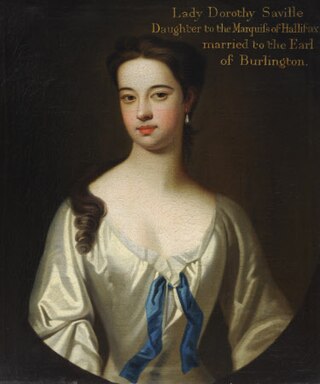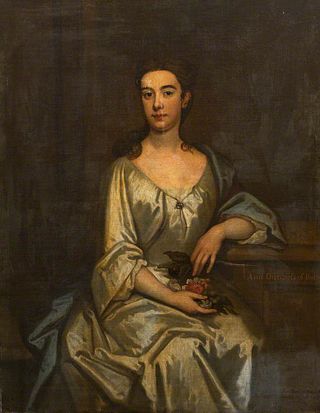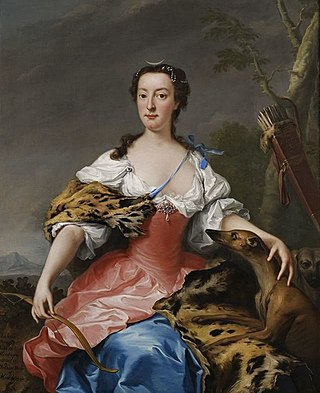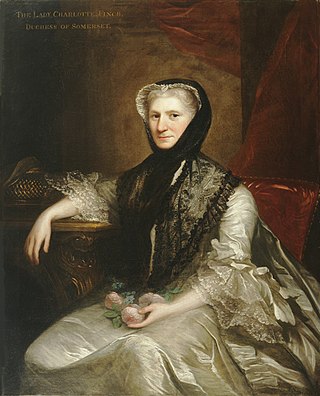In 1730 Thomas Coram approached aristocratic women with a petition to support the establishment of a Foundling Hospital, which he would present to King George II. [1] [2]
The women who signed were of aristocratic backgrounds, and Coram kept a list in his pocket memorandum book, captioned 'An Exact Account when each Lady of Charity Signed their Declaration'. [2] In several cases, he had already approached the women's husbands several years earlier, and been turned away. Their involvement is widely regarded as the gateway to wider support of his philanthropic cause. In an essay in the catalogue of an exhibition celebrating women's roles in the Foundling Hospital, Elizabeth Einberg states that:
"Coram could see that securing the approval of a group of right-thinking women, of wives and dowagers at the pinnacle of society would highlight the Christian, virtuous and humanitarian aspects of such an endeavour and make it socially acceptable. In the events, it became not only that, but one of the most fashionable charities of the day." [3]
These female signatories are listed here in chronological order of date of their signature:
| Name | Title at the time of Signature | Date of Signature | Image |
|---|---|---|---|
| Charlotte Seymour | Duchess of Somerset | 9 March 1729 |  |
| Ann Vaughan | Duchess of Bolton | 22 April 1729 |  |
| Henrietta Needham | Dowager Duchess of Bolton | 25 April 1729 |  |
| Sarah Lennox | Duchess of Richmond | 22 December 1729 |  |
| Isabella Montagu | Duchess of Manchester | 6 January 1730 |  |
| Ann Russell | Duchess of Bedford | 7 January 1730 |  |
| Elizabeth Knight | Baroness Onslow | 6 April 1730 | |
| Anne Pierrepoint | Dowager Baroness Torrington | 14 April 1730 |  |
| Frances Byron | Baroness Byron | 14 April 1730 |  |
| Selina Shirley | Countess of Huntingdon | 21 April 1730 |  |
| Juliana Hele | Duchess of Leeds | 24 April 1730 | |
| Frances Finch | Countess of Winchilsea and Nottingham | 25 April 1730 | |
| Frances Hales | Countess of Lichfield | 27 April 1730 | |
| Dorothy Boyle | Countess of Burlington | 19 May 1730 |  |
| Elizabeth Brudenell | Countess of Cardigan | 19 May 1730 |  |
| Frances Thynne | Countess of Hertford | 26 May 1730 | |
| Mary Tufton | Countess of Harold | 6 November 1733 |  |
| Anne Lennox | Countess of Albemarle | 6 November 1734 |  |
| Anne Weldon Barnard | Baroness Trevor | 2 December 1734 | |
| Anne King | Dowager Baroness Ockham | 21 January 1735 | |
| Margaret Cavendish Harley | Duchess of Portland | 7 May 1735 |  |
In 2018 the Foundling Museum held an exhibition to raise awareness of the role of women in founding and running the Foundling Hospital, called "Ladies of Quality and Distinction". [4] [5] [6] By their actions, these women succeeded. [2] [5]
















